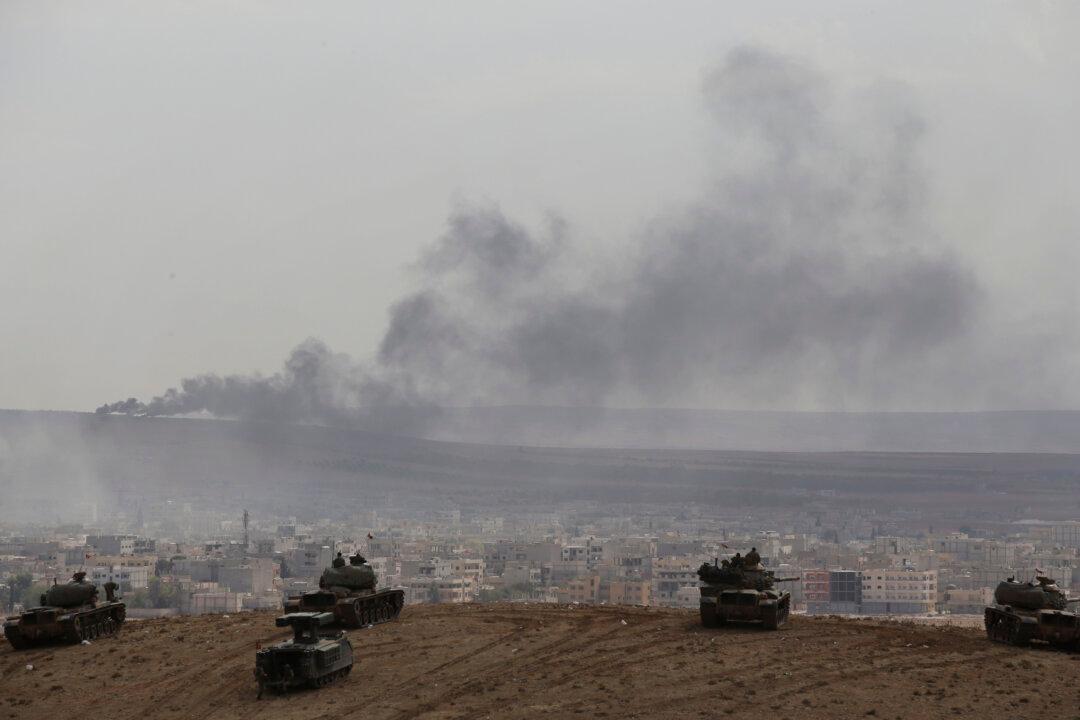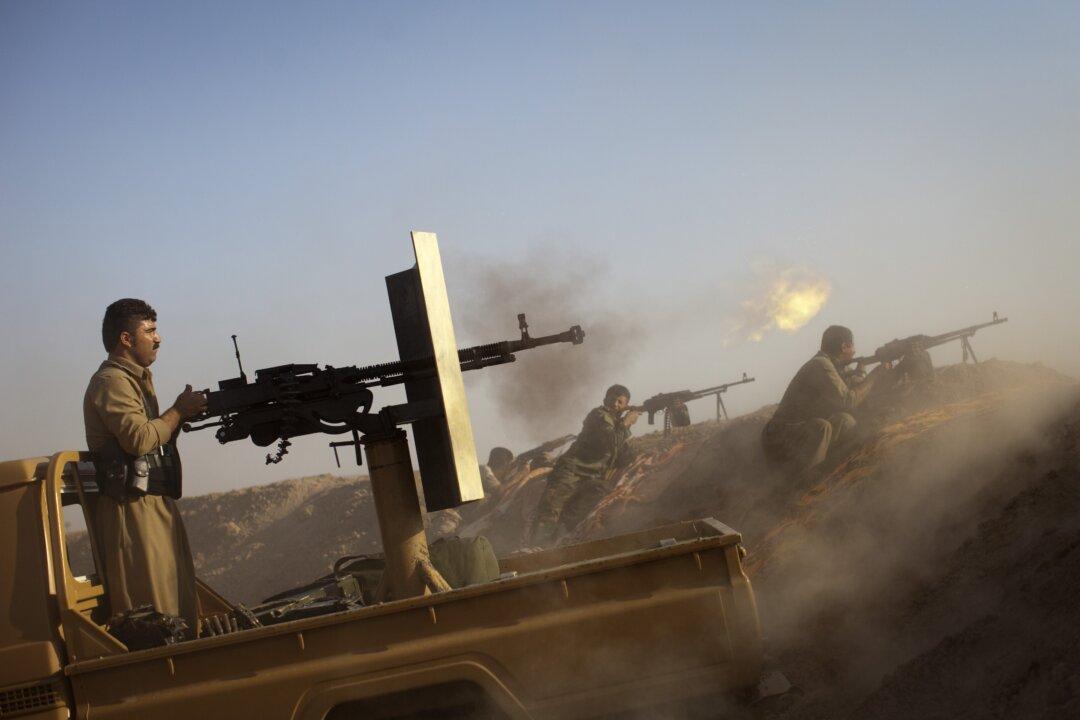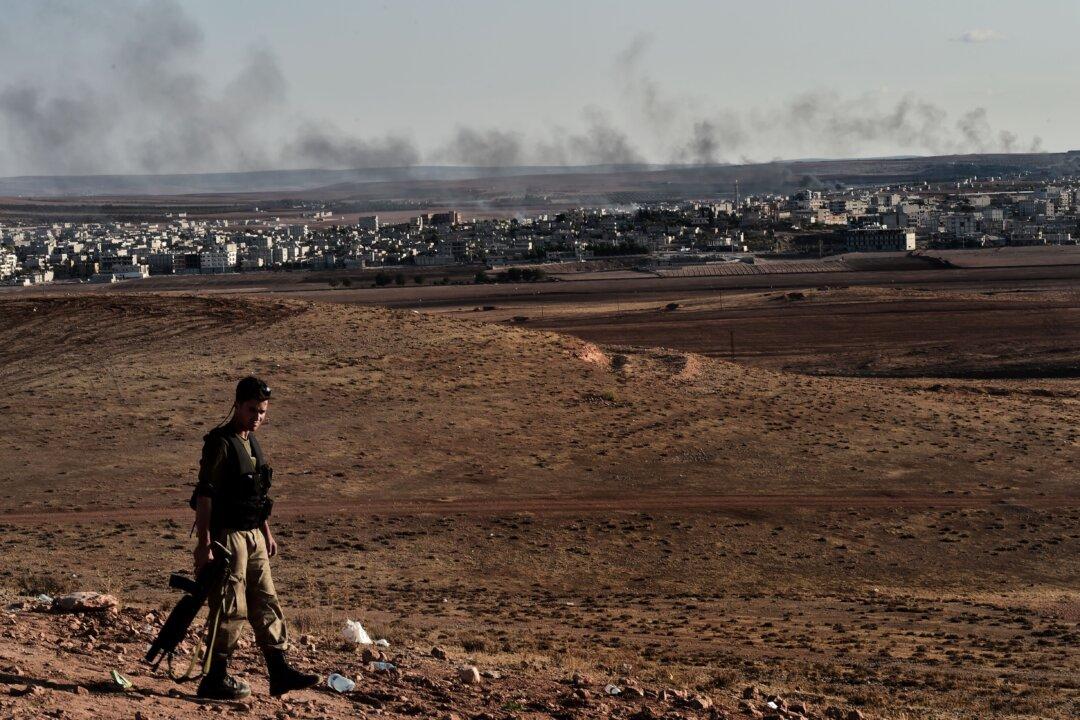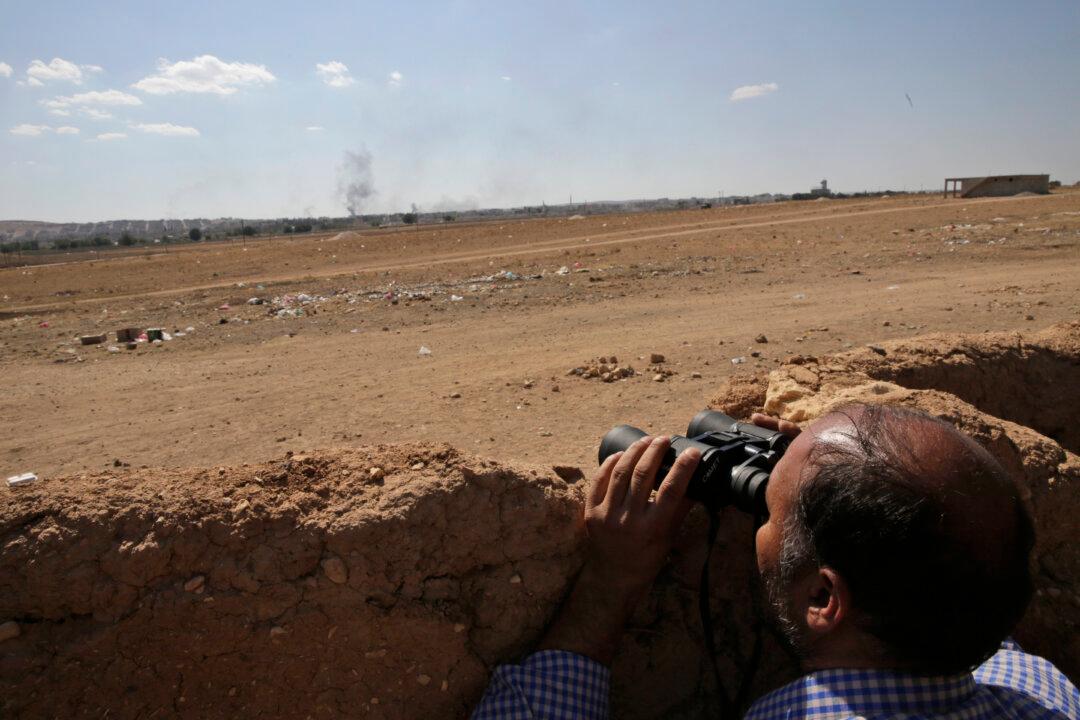MURSITPINAR, Turkey—The U.S.-led coalition ramped up its aerial bombardment of Islamic State positions in the Syrian border town of Kobani on Thursday as the extremist group battled street by street with Kurdish forces and reportedly rushed in reinforcements from surrounding areas.
The battle for the town near the Turkish border has emerged as a major early test for the U.S.-led air campaign aimed at rolling back and eventually destroying the extremist group, and has strained ties with NATO ally Turkey, which is at odds with Washington over its long-term strategy in Syria.
The U.S. Central Command said five airstrikes south of Kobani since Wednesday had destroyed an Islamic State group support building and two vehicles, and damaged a training camp. Thestrikes also struck two groups of Islamic State fighters, it said in a statement.
“Indications are that Kurdish militia there continue to control most of the city and are holding out against ISIL,” it said, using an acronym for the Islamic State group, which controls large swaths of territory in Syria and Iraq.
[aolvideo src=“http://pshared.5min.com/Scripts/PlayerSeed.js?sid=1759&width=480&height=300&playList=518455019&responsive=false”]
But despite the airstrikes overnight and into the morning, the Islamic State fighters managed to capture a police station in the east of the town, said the Britain-based Syrian Observatory for Human Rights. The station was later struck by coalition jets.
The Observatory, which relies on activists across Syria, said Kurdish forces had surrounded the jihadists in the area of the station and that heavy fighting was underway.
The Observatory said the militants had seized more than third of Kobani, but Kurdish officials disputed that, saying their forces had recaptured several parts of the town.
“I can confirm that they don’t control a third of the city. There is only a small part of Kobani under the control of Daesh,” said local Kurdish official Idriss Nassan, using an Arabic acronym to refer to the Islamic State group.
Both Nassan and the Observatory said more than 20 airstrikes have been conducted in the area since Wednesday afternoon.
Two columns of smoke rose over Kobani as warplanes buzzed overhead. Two strong explosions -- apparently from an airstrike -- echoed from the edge of the town, a cluster of low-slung concrete buildings nestled in rolling hills.
The crackle of gunfire and explosions could be heard on the Turkish side, where spectators watched the fighting unfold from a stretch of farmland.
The fighting over Kobani has brought Syria’s civil war yet again to Turkey’s doorstep, and allies have pressed Ankara to take a more robust role in the U.S.-led coalition fighting the Islamic State group. Kurds have held massive demonstrations across Turkey in which they accuse Ankara -- which has tanks just across the frontier -- of doing nothing to save the town.
Responding to such criticism, Turkish Foreign Minister Mevlut Cavusoglu said Thursday that it was unrealistic to expect Turkey to launch a ground war against the Islamic State group on its own.
Cavusoglu spoke at a news conference in Ankara with visiting NATO chief Jens Stoltenberg, who said that there is no easy solution for Kobani.
“ISIL poses a grave threat to the Iraqi people, to the Syrian people, to the wider region, and to NATO nations,” Stoltenberg said. “So it is important that the whole international community stays united in this long-term effort.”
Cavusoglu said that Turkey is prepared to take on a bigger role once a deal is reached with theU.S.-led coalition. “Turkey will not hold back from carrying out its role,” he said.
Turkish officials have said that while they do not want Kobani to fall, they will not take on a greater role until the coalition outlines a broader strategy that also weakens Syrian President Bashar Assad, who at the moment is best positioned to benefit from any rollback of the Islamic State group.
Ankara is also suspicious of the Syrian Kurdish forces fighting on the ground in Kobani, seeing them as an extension of the Kurdish PKK, which waged a long and bloody insurgency against Turkey.
The U.S. special envoy for the coalition, retired Marine Gen. John Allen, was expected to travel to Turkey after a stop-over in Egypt on Thursday in which he met with Egyptian and Arab League officials.
Islamic State militants launched their offensive on Kobani in mid-September, capturing several nearby Kurdish villages and steadily tightening their noose around the town. The fighting has forced at least 200,000 residents from the area to flee across the frontier into Turkey.
The Observatory’s chief, Rami Abdurrahman, said that more than 500 people have been killed in and around Kobani since the fighting began in September. He said the Islamic State group was rushing in reinforcements from surrounding areas, indicating the extremists also view Kobani as a test of will.
From The Associated Press. AP writer Bassem Mroue in Beirut and Ryan Lucas in Mursitpinar, Turkey, contributed to this report.



